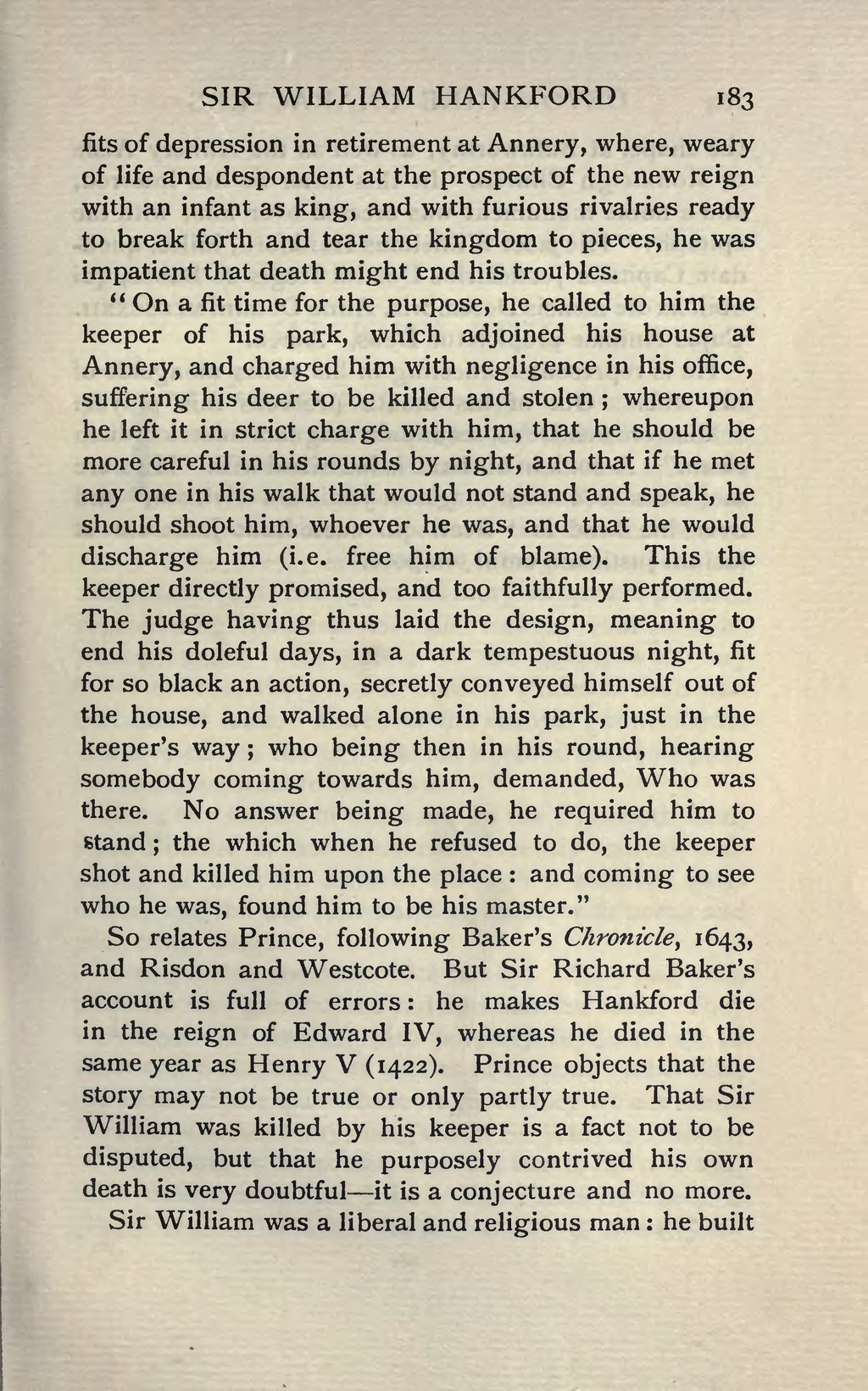fits of depression in retirement at Annery, where, weary of life and despondent at the prospect of the new reign with an infant as king, and with furious rivalries ready to break forth and tear the kingdom to pieces, he was impatient that death might end his troubles.
"On a fit time for the purpose, he called to him the keeper of his park, which adjoined his house at Annery, and charged him with negligence in his office, suffering his deer to be killed and stolen; whereupon he left it in strict charge with him, that he should be more careful in his rounds by night, and that if he met any one in his walk that would not stand and speak, he should shoot him, whoever he was, and that he would discharge him (i.e. free him of blame). This the keeper directly promised, and too faithfully performed. The judge having thus laid the design, meaning to end his doleful days, in a dark tempestuous night, fit for so black an action, secretly conveyed himself out of the house, and walked alone in his park, just in the keeper's way; who being then in his round, hearing somebody coming towards him, demanded, Who was there. No answer being made, he required him to stand; the which when he refused to do, the keeper shot and killed him upon the place: and coming to see who he was, found him to be his master."
So relates Prince, following Baker's Chronicle, 1643, and Risdon and Westcote. But Sir Richard Baker's account is full of errors: he makes Hankford die in the reign of Edward IV, whereas he died in the same year as Henry V (1422). Prince objects that the story may not be true or only partly true. That Sir William was killed by his keeper is a fact not to be disputed, but that he purposely contrived his own death is very doubtful—it is a conjecture and no more.
Sir William was a liberal and religious man: he built
